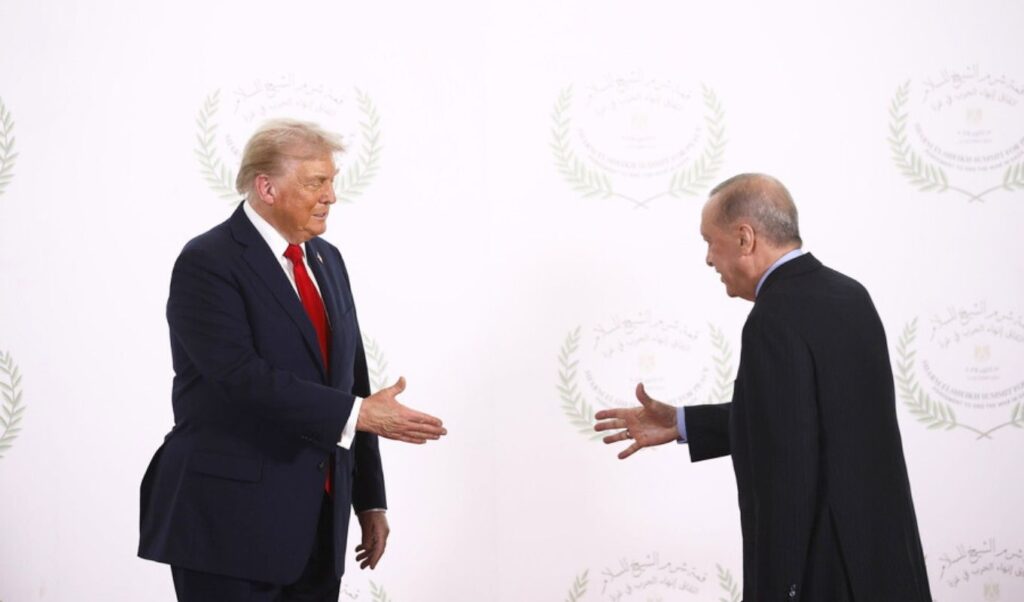Turkey’s ties with Hamas, once an obstacle for Washington, have transformed into a geopolitical advantage. By convincing Hamas to accept Donald Trump’s Gaza deal, Ankara has reinserted itself into the Middle East chessboard, to the disappointment of Israel and Arab rivals, according to Reuters. Initially, Hamas opposed Trump’s ultimatum regarding the release of Israeli hostages or facing total destruction. However, Hamas leaders only backed down when Turkey – a country they consider their political patron – urged them to agree to the American plan.
Trump on Erdogan: He’s one of the most powerful in the world
According to Reuters, citing two regional sources and two officials, Ankara’s message was clear: now is the time to accept the agreement. “This gentleman from a place called Turkey is one of the most powerful in the world,” Trump declared last week, referring to Turkish President Recep Tayyip Erdogan, after the Palestinian militant group agreed to a ceasefire and hostage release plan. “He’s a reliable ally. He’s always there when I need him,” he stated.
Erdogan’s signature on the Gaza document reinforced Turkey’s effort to assume a central role in the Middle East. This is a position the Turkish president has been fighting to reclaim, often invoking Ottoman-era ties and leadership. Now, following the agreement, Turkey seeks to reap benefits, including on bilateral issues with the US, sources reported.
Turkey’s success in the peace agreement
According to the same source, Sinan Ulgen, director of the Istanbul-based think tank EDAM and senior researcher at Carnegie Europe, said that Ankara’s success in securing Hamas’s acceptance of Trump’s Gaza deal has given it new diplomatic influence domestically and internationally. He noted that Turkey is likely to use Washington’s renewed goodwill to push for progress on delayed F-35 fighter jet sales, relaxation of American sanctions, and US assistance in advancing Turkey’s security goals in neighboring Syria. “If these praising statements by Trump translate into sustained goodwill, Ankara could use this momentum to resolve some of the long-standing disagreements,” Ulgen told Reuters.
US-Turkey relations
The bridge in relations between Ankara and Washington began during Erdogan’s first visit to the White House in six years in September, according to officials. The meeting discussed unresolved issues, including Turkey’s pressure to lift US sanctions imposed in 2020 over the purchase of Russian S-400 missile systems, a move that angered Washington and led to its removal from the F-35 program.
Syria was another key topic in the two leaders’ discussion. Turkey wants to pressure the US-backed Syrian Democratic Forces (SDF) to integrate into the Syrian army. Ankara views the SDF as a threat due to their ties with the PKK, which Turkey designates as a terrorist organization. This pressure appears to be gaining ground. SDF commander Mazloum Abdi confirmed a mechanism for integration with the Syrian army, an outcome Turkey considers a strategic victory.
The Gaza peace agreement wasn’t the only event that helped boost Turkey’s prestige. Earlier this year, Trump praised Erdogan for hosting talks between Russia and Ukraine, while Ankara’s influence increased after Bashar al-Assad’s fall in Syria in 2024, where Turkey supported opposition forces.




